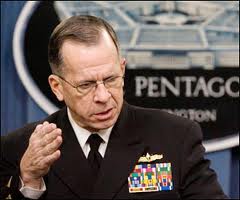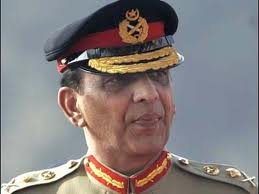US Admiral Mike Mullen, chairman of the Joint Chiefs of Staff, on Thursday accused the Pakistani army’s Inter-Services Intelligence agency of supporting Haqqani insurgents in planning and executing a 22-hour assault on the U.S. Embassy in Afghanistan last week and a truck bomb that wounded 77 American soldiers days earlier.
If true, this would constitute an act of war by Pakistan against the US.
The claims were the most serious yet by an American official against nuclear-armed Pakistan, which Washington has given billions in civilian and military aid over the last 10 years to try to secure its cooperation inside Afghanistan and against al-Qaida.
Mullen’s words marked the first time an American official had tied Pakistan’s intelligence agency directly to the attacks and signaled a significant shift in the U.S. approach to Islamabad. In the past, U.S. criticism of Pakistan largely had been relayed in private conversations with the countries’ leaders while American officials publicly offered encouraging words for Islamabad’s participation in the terror fight.
Admiral Mullen did not provide specific evidence backing up his accusations or indicate what the U.S. would do if Pakistan refuses to cut ties to the Haqqani network. The U.S. has repeatedly demanded that Pakistan attack the insurgents and prevent them from using the country’s territory.
Pakistan’s army chief dismissed U.S. allegations that his spy agency had helped Afghan militants attack the U.S. Embassy in Kabul, saying Friday the charges were baseless and part of a public “blame game” detrimental to peace in Afghanistan.
Army Chief Gen. Ashfaq Pervez Kayani, regarded as the most powerful man in Pakistan, said in a terse statement that Islamabad had no immediate intention of acting on renewed American demands that it attack the Haqqani militant faction in their main base in northwest Pakistan. It also ramped up a dispute between the two nominally allied nations that has exposed their increasingly deteriorating relationship.
The Haqqani insurgent network is widely believed to be based in Pakistan’s North Waziristan tribal area along the Afghan border. The group has historical ties to Pakistani intelligence, dating back to the war against the Soviets in Afghanistan in the 1980s.
 ***Ed Randazzo, is a nationally syndicated author and the Chief News Editor of Life and Liberty Media***
***Ed Randazzo, is a nationally syndicated author and the Chief News Editor of Life and Liberty Media***



